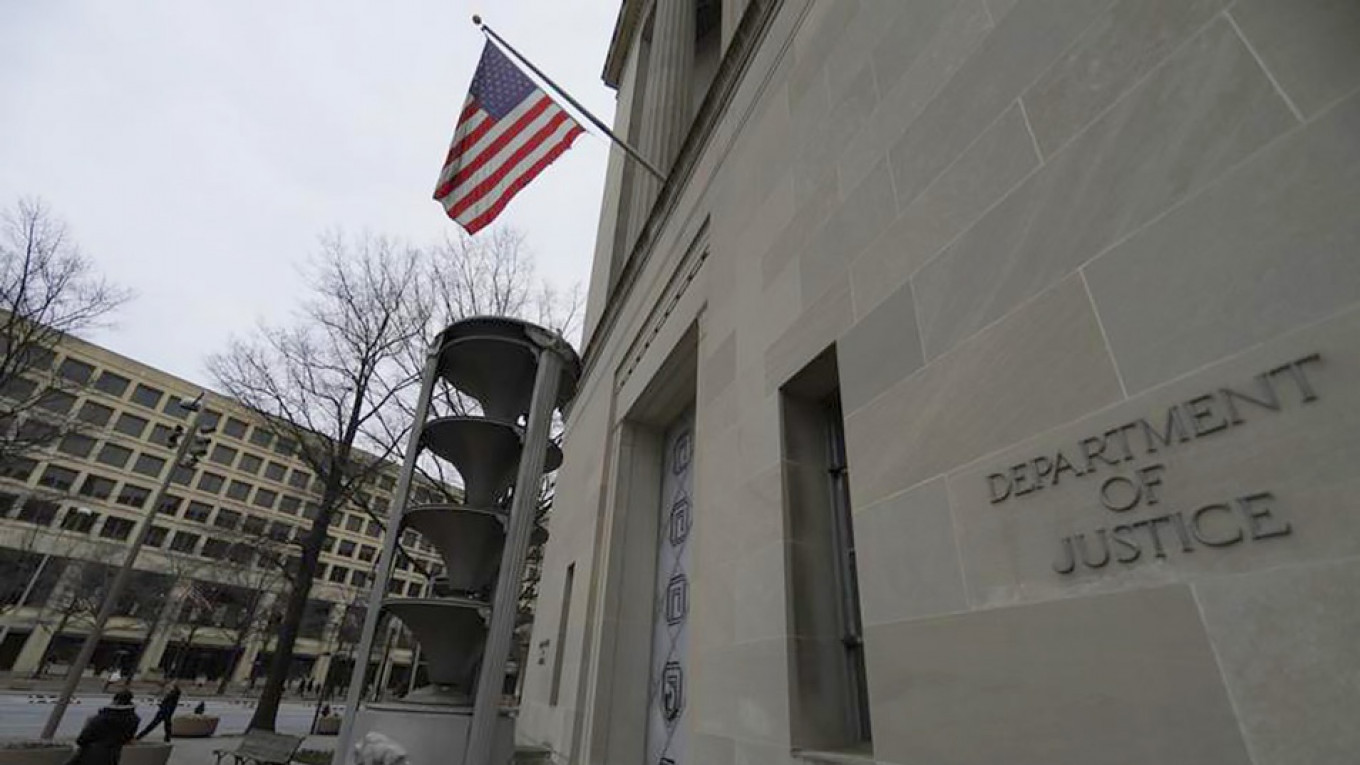The State Department notified Congress that Russia ignored a deadline to swear off the use of chemical weapons, opening the possibility of new sanctions linked to a nerve-agent attack in the U.K.
The department determined that Russia hasn’t met the conditions set forth in the 1991 Chemical and Biological Weapons Control and Warfare Elimination Act, spokeswoman Heather Nauert said in a statement Tuesday. The law requires Moscow to assure the U.S. that it will no longer use chemical or biological weapons, and allow inspections to verify the claim.
“The Department is consulting with Congress regarding next steps,” Nauert said, referencing a legal requirement that can be dragged out before any sanctions are either imposed or waived.
The U.S. invoked the law in August, and then imposed a new round of sanctions to punish President Vladimir Putin’s government for the nerve-agent attack against former spy Sergey Skripal and his daughter in the U.K. in March. Under the law, Russia had 90 days to demonstrate that it would renounce the use of chemical weapons and allow inspectors.
That Russia would make such a gesture was seen as highly unlikely given that it’s denied any role in the attack against Skripal. Russian officials had strongly condemned the U.S. sanctions action in August.
Now, President Donald Trump faces a choice: The 1991 law demands new, sweeping sanctions including a downgrading in diplomatic relations, blanket bans on the import of Russian oil and exports of “all other goods and technology” aside from agricultural products, as well as limits on loans from U.S. banks.
Trump can avert those sanctions if he concludes that waiving them is in the U.S. national interest. That means he must weigh a nearly complete rupture in ties with Russia against the possibility of renewed criticism that he’s been too soft on Russia on issues including interference in the 2016 presidential campaign.
U.S. officials suggest there’s no rush to make a decision, arguing that the 1991 law doesn’t set out a timeline for when consultations with Congress should end. In her statement, Nauert said only the department will “proceed in accordance with the terms of the CBW act, which directs the implementation of additional sanctions.”
The lack of a path forward prompted criticism from Representative Ed Royce, the California Republican who chairs the House Foreign Affairs Committee.
“No one should be surprised that Vladimir Putin refuses to swear off future use of weapons-grade nerve agents,” Royce said. “It is unacceptable that the administration lacks a plan -- or even a timeline -- for action on the second round of mandatory sanctions required by U.S. law.”
After a Trump-Putin summit in Helsinki in July, where Trump was widely criticized for failing to call Putin to account over the election meddling, the U.S. administration came under new pressure to take tougher steps against Russia, even as Trump himself has called for closer ties.
Putin and Trump had been expected to meet this weekend in Paris, where they’ll be attending a ceremony marking the 100th anniversary of the end of World War I. But Trump has said that probably won’t happen, making it most likely that the two will have a formal meeting at the Group of 20 gathering in Argentina in late November.
A Message from The Moscow Times:
Dear readers,
We are facing unprecedented challenges. Russia's Prosecutor General's Office has designated The Moscow Times as an "undesirable" organization, criminalizing our work and putting our staff at risk of prosecution. This follows our earlier unjust labeling as a "foreign agent."
These actions are direct attempts to silence independent journalism in Russia. The authorities claim our work "discredits the decisions of the Russian leadership." We see things differently: we strive to provide accurate, unbiased reporting on Russia.
We, the journalists of The Moscow Times, refuse to be silenced. But to continue our work, we need your help.
Your support, no matter how small, makes a world of difference. If you can, please support us monthly starting from just $2. It's quick to set up, and every contribution makes a significant impact.
By supporting The Moscow Times, you're defending open, independent journalism in the face of repression. Thank you for standing with us.
Remind me later.






